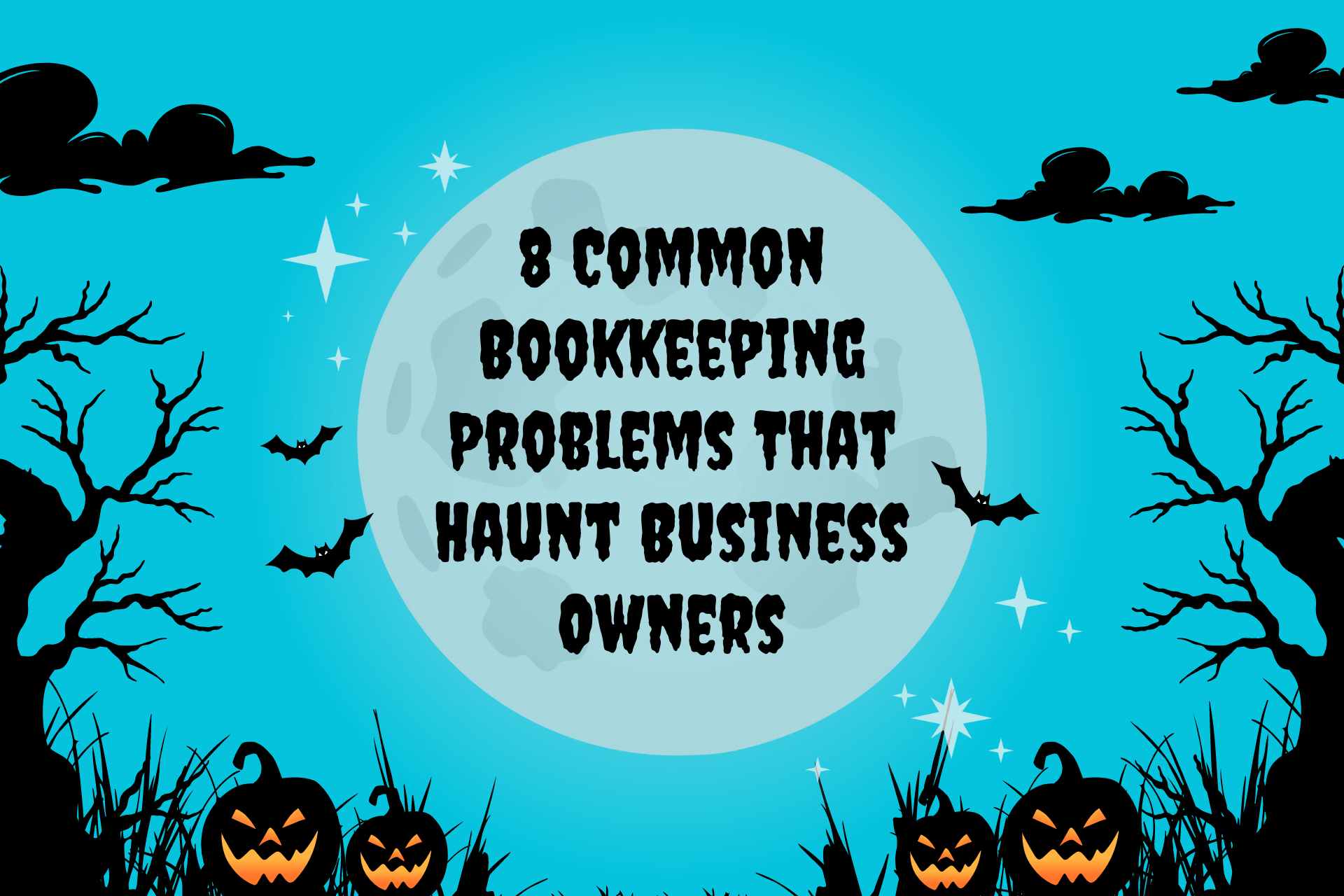Running a business is hard enough without having to untangle the webs of messy bookkeeping. If you’ve ever felt haunted by your financial records, you’re not alone. Here are eight common bookkeeping problems that can spook any business owner, and how you can tackle them effectively.
Table of Contents
- 1. Chasing Down Late Payments: Staying on Top of Debtors
- 2. Blurring the Lines: Mixing Business and Personal Finances
- 3. BAS and GST Stress: Staying on Top of Compliance
- 4. Falling Behind on Bank Reconciliations: Don’t Let It Pile Up
- 5. Manual Data Entry: Automate Where Possible
- 6. Cash Flow Issues: Focus on Cash Flow, Not Just Profit
- 7. Missed Deductions: Understand What’s Claimable
- 8. Knowing When to Seek Professional Help
- Don’t Let Bookkeeping Issues Haunt Your Business
1. Chasing Down Late Payments: Staying on Top of Debtors
Unpaid invoices can haunt your cash flow and disrupt business operations. Late-paying clients often leave you struggling to cover expenses while your accounts receivable balance keeps growing. The constant chase to collect overdue payments drains your time and energy, pulling your focus away from running and growing your business.
Set clear payment terms and issue invoices promptly. Follow up on overdue payments regularly using automated reminders through your accounting software. Consider offering incentives for early payments or setting up payment plans for persistent late payers. Staying proactive helps keep cash flowing smoothly, ensuring your business isn’t tricked by unpaid debts.
2. Blurring the Lines: Mixing Business and Personal Finances
Personal and business expenses often get tangled, especially when starting out. From using the wrong card to covering personal costs with business funds, this mix-up can quickly turn your bookkeeping into a mess. Blurring these lines complicates tax time, makes compliance more challenging and obscures a clear view of your business’ financial health.
Set up a separate bank account specifically for your business and ensure it’s only used for business-related transactions. This separation simplifies expense tracking, helps maintain accurate records and ensures that your financial picture is always clear. Plus, it makes it much easier for your bookkeeper to manage your accounts and provide accurate financial advice.
3. BAS and GST Stress: Staying on Top of Compliance
The pressure of quarterly BAS lodgments and managing GST obligations can quickly overwhelm business owners. These critical compliance tasks require accurate attention to detail, and missing deadlines or filing errors can lead to costly penalties. Keeping track of GST transactions and ensuring accurate reporting can feel like a constant burden.
Set up calendar reminders for BAS lodgment dates and ensure your bookkeeping software is set to track GST on all relevant transactions. Regularly review your GST codes and transactions to ensure everything is categorised correctly. If unsure, consulting with a professional bookkeeper can save you from costly errors.
4. Falling Behind on Bank Reconciliations: Don’t Let It Pile Up
Does reconciling your bank statements feel like a chore you always put off? It’s easy to let this task slide but once you’re months behind, errors, missed expenses and discrepancies can start piling up.
Schedule a weekly reconciliation session to keep your accounts up to date. This habit helps you identify discrepancies early, keeps your cash flow statements accurate and avoids the stress of having to untangle months of transactions at year-end. Staying on top of this task means no nasty surprises when you’re reviewing your finances.
5. Manual Data Entry: Automate Where Possible
Manual data entry is a time-consuming process that eats away at your productivity. The repetitive task of entering receipts, invoices and transactions is not only tedious but also increases the risk of errors that can affect your financial accuracy. Relying on outdated processes slows you down and prevents you from focusing on growing your business.
Use cloud-based bookkeeping software like Xero or MYOB to automate data entry, invoice reminders and bank reconciliation. Apps like Hubdoc or Dext can automatically capture and sort receipts. Automation ensures your books are always up to date so you can focus on running your business rather than getting bogged down in admin.
6. Cash Flow Issues: Focus on Cash Flow, Not Just Profit
A business can be profitable on paper yet still struggle to keep cash in the bank. This often happens when the focus is solely on profit while cash flow management is overlooked. Cash is the lifeblood of your business and without careful monitoring of inflows and outflows, you risk unexpected disruptions.
Monitor your cash flow closely by reviewing cash flow statements monthly or even weekly. Use software features to create forecasts and understand your cash flow trends, which will help you plan for upcoming expenses and avoid cash shortages. Good cash flow management is the treat that keeps your business thriving.
7. Missed Deductions: Understand What’s Claimable
Understanding what deductions and write-offs you’re eligible for can be confusing, especially with frequently changing tax rules. Many business owners miss out on eligible expenses simply because they don’t know what’s claimable, leading to higher tax bills than necessary.
Keep detailed records of all business-related expenses including travel, home office costs, equipment and even educational courses. Engage a bookkeeper or accountant to help identify deductible expenses specific to your industry and keep up with changes in tax laws, like the instant asset write-off scheme. This proactive approach can save you money come tax time.
8. Knowing When to Seek Professional Help
Handling your own bookkeeping might work when you’re just starting out but as your business grows, so does the complexity. DIY bookkeeping can quickly lead to mismanaged records, compliance issues and missed deadlines, adding avoidable stress and potential costs. Engaging professional support can help you stay on top of your finances so you can focus on what you do best.
Enlisting the help of professional bookkeeping services can significantly transform your business. A skilled bookkeeper does more than just manage your books—they offer valuable insights into your financial health, support strategic planning and ensure compliance. This partnership not only saves you time and stress but also empowers you to focus on growing your business with confidence.
Don’t Let Bookkeeping Issues Haunt Your Business
Bookkeeping doesn’t have to be a horror story. Recognising these common issues is the first step toward better financial management. At Carbon, we understand the challenges business owners face because we’ve been there ourselves. Don’t let these problems haunt your operations. Let us help you turn those tricks into treats with our expert bookkeeping services tailored to your needs.






















